Award winning dermatology service, with over 20 years on experience
Short waiting lists, on some occasions offering same week appointments
Safe environment, in Care Quality Commission approved facilities
Skin Cancer Treatments Include:
private skin cancer treatment IN CANTERBURY & KENT
Skin cancer is the most common form of cancer in the UK, with over 400 people being diagnosed every day. There are three main types of skin cancer, basal cell carcinoma, squamous cell carcinoma and melanoma. The first two are both known as non-melanoma skin cancer and are the most common varieties.
Non-melanoma skin cancer refers to a group of cancers that slowly develop in the upper layers of the skin and are the most common forms. These are identified by a lump or discoloured patch on the skin. Melanoma is less common and can be more serious and aggressive as it can spread to other organs in the body. The most common sign of melanoma skin cancer is changing moles. If you know the main signs and symptoms to look out for, an early diagnosis typically means a better long-term prognosis for recovery.
WHAT CAUSES SKIN CANCER?
Exposure to sunlight is the most well known cause of skin cancer. The number of cases of skin cancer is on the rise, despite years of warning against excessive tanning and the dangers of sunbeds. People with paler skin (Fitzpatrick skin types 1-3) are at a higher risk of developing skin cancer as they are more vulnerable to damage from the sun’s ultraviolet (UV) rays.
You are also at an increased risk of skin cancer (melanoma), if you have a large number of moles. It is important to monitor any unusual shaped moles which are over 5mm. If you have concerns about a mole on your body, book in a mole check with one of our experienced consultants.
WHAT DOES SKIN CANCER LOOK LIKE?
Non-melanoma skin cancers are generally slow to develop or spread, while melanoma can be much more aggressive and therefore poses a greater threat. It is always a good idea to keep an eye on any moles on the skin, as the signs of malignant melanoma will usually manifest themselves as changes in the appearance of moles.
Protecting your skin is, of course, always the best course of action, but if your skin has already been damaged by the sun and presents some changes that you find worrying, make sure you seek professional advice. If you are looking for a private skin cancer clinic, Canterbury Skin and Laser Clinic can offer you a consultation and if necessary, treatment. Our clinical director has undertaken and published research on the subject, and it remains one of his specialist areas.
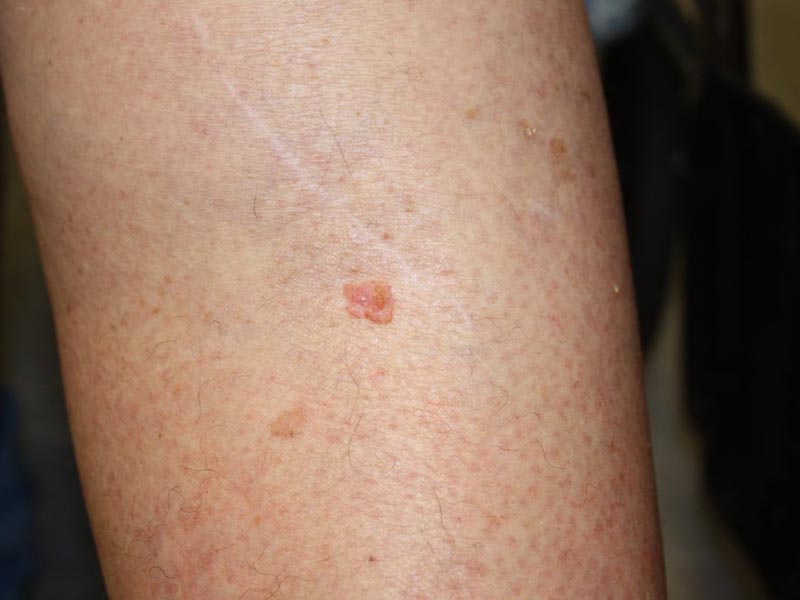
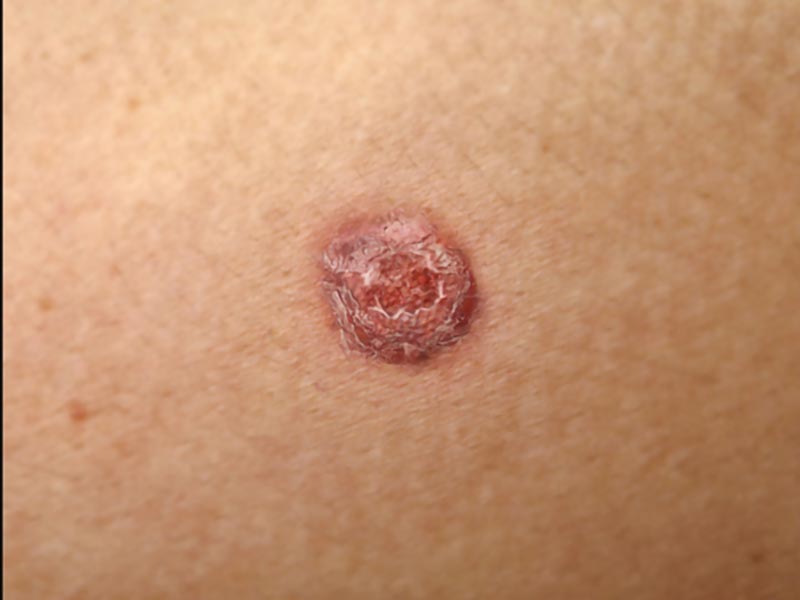
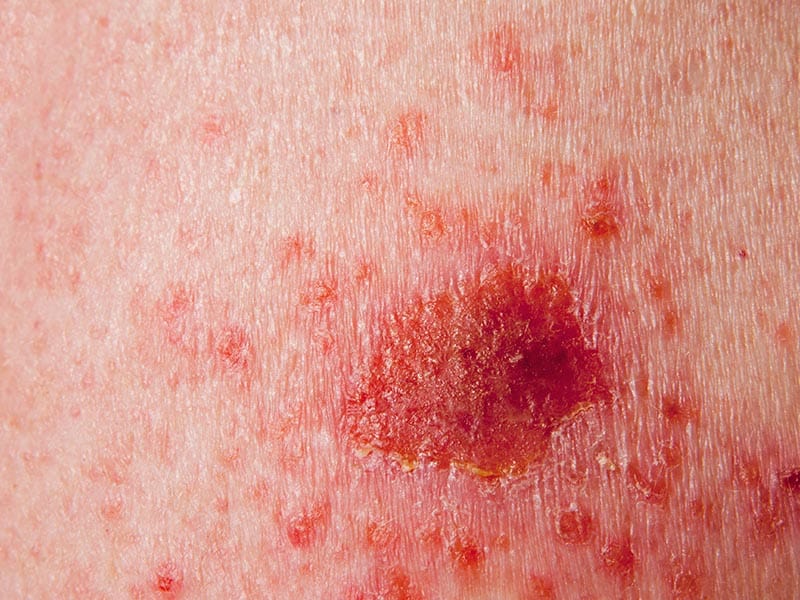
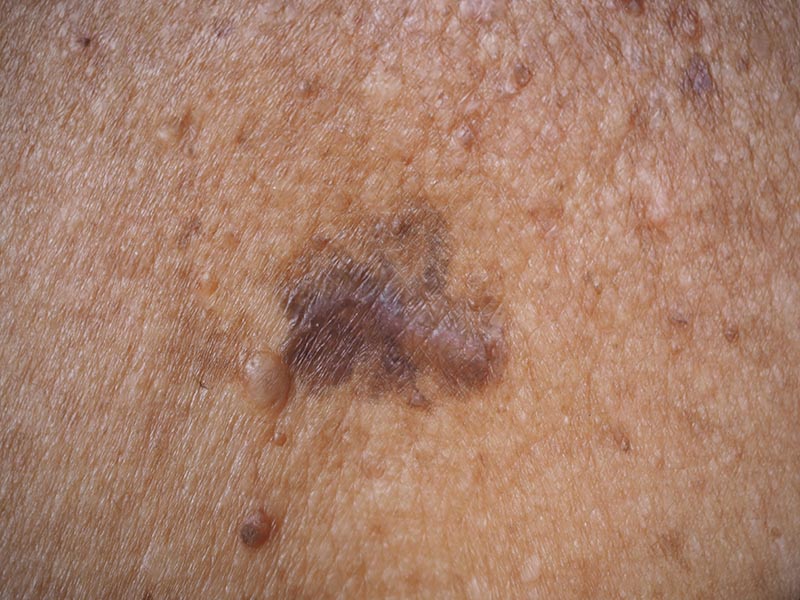
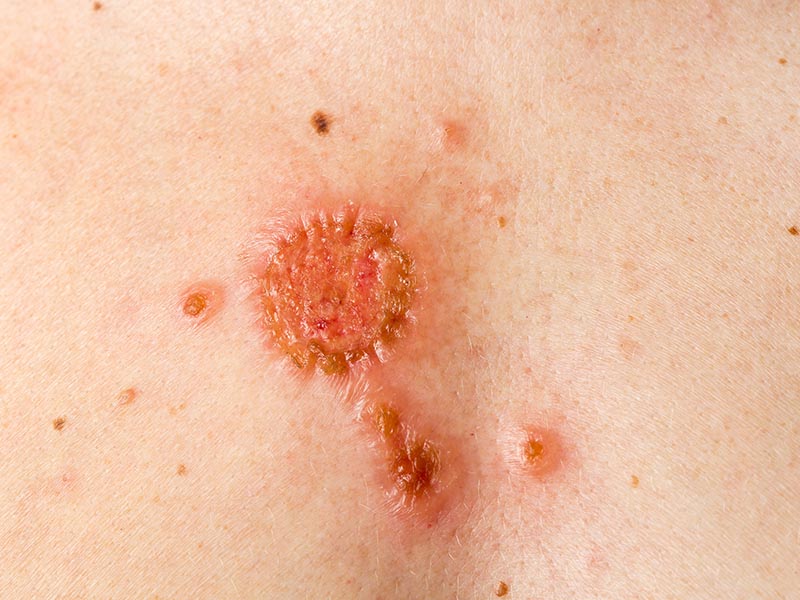
HOW CAN SKIN CANCER BE TREATED?
The treatment you are offered will depend on the type of skin cancer you have, the location of the lesion and how developed it is. You will be required to attend a consultation with a consultant dermatologist who will assess your skin and advise on the best course of treatment. Common Skin Cancer treatments include:
- Micrographic Surgery (MOHS)
- Surgical excision
- Curettage and electrocautery
- Cryotherapy
- Anti-Cancer Creams
- Photodynamic Therapy (PDT)
If it is identified that you do have skin cancer and treatment is needed, the Canterbury Skin & Laser clinic offers a range of treatment options which will be discussed with you during your consultation. Skin cancer can be removed surgically under local anaesthetic with the most common dermatological surgeries to treat skin cancer being MOHS, Excision, and Curretage and Electrocautery. There are also a number of non-surgical skin cancer treatments on offer, these include photodynamic therapy, topical creams and Cryotherapy.
FREQUENTLY ASKED QUESTIONS
IS SKIN CANCER HEREDITARY?
Skin cancer is not hereditary in the sense that it is passed down through a gene. However, skin type does run in families so those more likely to develop skin cancer are often in the same family.
WHO IS MOST AT RISK OF GETTING SKIN CANCER?
Men are more likely than women to develop skin cancer and it is more common in the elderly.
WHAT FACTOR SUN CREAM SHOULD I USE?
It is recommended to use a high factor of sunscreen no matter your skin type. SPF30 with a 4-star UVA rating during the summer is recommended for those with paler skin to stop burning but also to help prevent wrinkles and sunspots in those who don’t burn as easily.
DO SUNBEDS CAUSE SKIN CANCER?
Research shows sun beds are a significant risk factor in skin cancer.
HOW CAN I PREVENT DEVELOPING SKIN CANCER?
Protecting your skin is, of course, always the best course of action. The easiest ways you can do this include:
- Wearing a waterproof, high level of SPF protection when in the sun
- Use a daily moisturiser with SPF protection
- Avoid the sun when it is at its strongest during the day
- Wear a hat when in the sun
- Sit in the shade
REQUEST A CALL BACK
Please fill in this form and one of our team will give you a call back to arrange a consultation with one of our expert dermatologists.
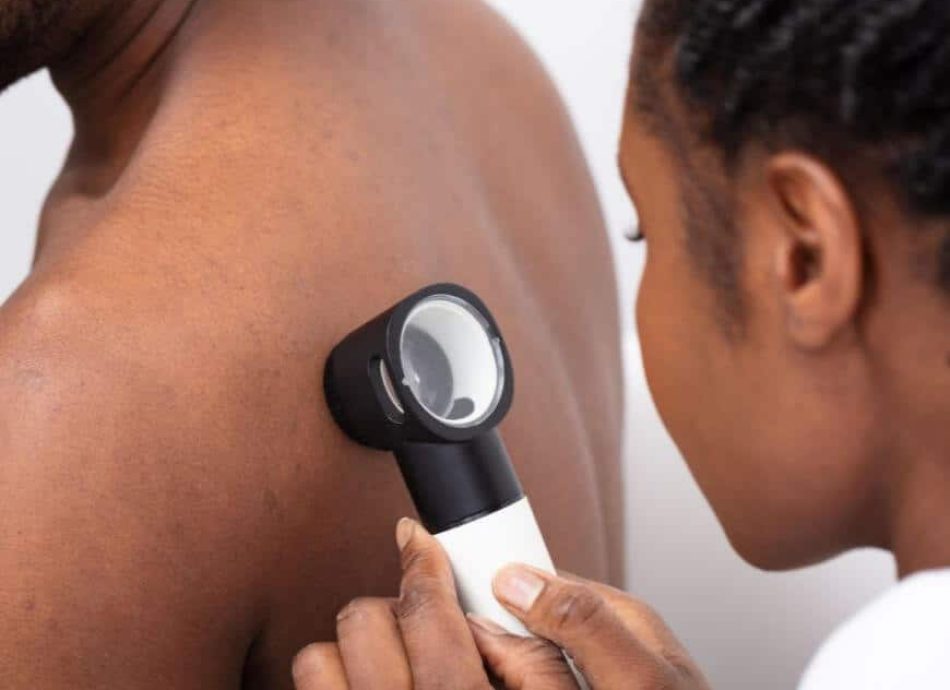
What our Customers Say
WHY TREAT YOUR SKIN CANCER AT CANTERBURY SKIN AND LASER CLINIC?
Here at Kent’s leading private skin and laser clinic, our experts are specialists in all aspects of dermatology, skin cancer, anti-ageing and beauty treatments. We are one of the few skin clinics in the UK where all medical consultations and treatments are provided by specialist doctors with Dermatology experience and laser training.
Canterbury Skin and Laser Clinic is regulated by the Care Quality Commission, ensuring the best level of treatment is provided to you in a safe environment. Our Clinical Lead Dr Mark Hudson-Peacock is a member of the British Association of Dermatologists, the British Laser Medical Association, the British Hair and Nail Society, the European Academy of Dermatology and Venereology and is certified by the Consulting Room. We have won many awards including the WhatClinic Patient Service Award in 2019 and the ghp Healthcare and Pharmaceutical Awards 2019.
SKIN CANCER INSIGHTS AND ADVICE

Complete Fall Skincare Guide
Embrace the season of transformation – Autumn. With its vibrant hues, this magical time of year also brings unique challenges for your skin. As the crisp air sets in and the days grow shorter, it’s not only autumn we’re welcoming but also the reminder that
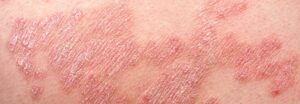
Comprehensive Guide to Understanding Eczema
October is globally observed as Eczema Awareness Month, drawing focus to the people grappling with this challenging skin condition. Our mission, not just in October but always, is to empower you with robust knowledge about eczema‘s root causes, various treatments and useful coping techniques. This
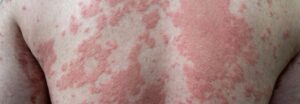
Unravelling Psoriasis: The Focus of Psoriasis Awareness Month
Each August, we commemorate Psoriasis Awareness Month, a time dedicated to elevating public understanding of psoriasis – a chronic skin ailment affecting countless individuals worldwide. The initiative is designed to dispel myths surrounding psoriasis, encourage early detection and advocate for impactful treatment methods. To those








